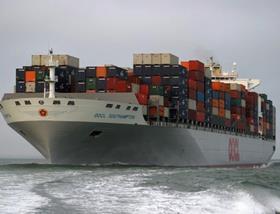
Imbalance between supply and demand within the seafreight sector has contributed significantly to Orient Overseas Limited’s (OOCL) poor financial performance over 2013, according to the group’s chairman CC Tung.
The shipping giant has announced a profit attributable to equity holders of US$47m for last year, compared to a profit of US$295.4m in 2012. Earnings per ordinary share in 2013 were US$0.07, significantly down on US$0.47 a year earlier.
“Seaborne trade growth for the liner industry was subdued in 2013,” Tung said. “Freight levels were disappointing, especially during the first half of the year. During the second half of the year, both physical cargo movement and sentiment improved, resulting in a slightly better freight market.”
While it is anticipated further tonnage growth will lead to continued over capacity in 2014, Tung believed the upcoming 12 months will be more positive than the ones just passed.
“It is forecasted the demand growth in 2014 will outpace that of 2013,” Tung explained. “With the US (economic) recovery now a consensus, Eurozone recovery on more solid ground, and the current Chinese and Japanese economic growth trajectory, a healthier trade outlook should be expected despite recent uncertainty on emerging markets. Such development should mean improved outlook for the Transpacific, Asia Europe and Intra Asia trades and more positive results for the industry as a whole.”
During the course of 2013, the group invested heavily in upgrading its fleet, taking delivery of two SX Class 8,888 TEU vessels from HuDong Zhonghua Shipbuilding in China, and eight Mega Class 13,208 TEU vessels from Samsung Heavy Industries Co. The Mega Class 13,208 TEU vessels are currently the largest containerships operated by the group.
OOCL is also working with the Port of Long Beach to combine and upgrade two shipping terminals, while making substantial investments in its logistics operations.
“After a period of consolidation and re-positioning, the group continues to strengthen and grow its logistics business, particularly in the areas of international supply chain and import-export services, and domestic transportation and warehousing services,” Tung said. “The footprint of this business has grown to 130 offices in 30 countries. It is expected that the logistics business will become a meaningful contributor to the Group over the long term.”






No comments yet